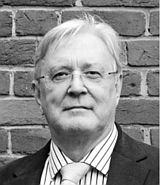How many of us are being faced with trying to model uncertainty – only to find that this very exercise throws up potentially thousands, tens or hundreds of thousands and even millions of possible solutions or outcomes...?
How do you arrive at a much smaller and manageable set of viable solutions from which you can develop an objective and meaningful strategy…?
In the immediate wake of the Brexit referendum result, prominent Brexiteers postulated that the process to disengage from the EU would be a relatively simple matter. Yet it is increasingly apparent to our negotiators that the process is highly complex and fraught and that the earlier, hoped for, timetable has been delayed to the extent that a situation akin to an “impasse” has been reached, with few signs that the log-jam will be unblocked soon.
If our government (and indeed its counterparts in the EU) is struggling to come to terms with this ever-changing situation, how difficult is it for the business community, which is trying to second guess both the UK and EU negotiators, to address such complexity in the face of this uncertainty?
If I told you that, subject to following a number of steps or processes, such problems with potentially vast numbers of permutations (and we are talking of permutations even in the millions) could be majorly reduced to a much smaller set of viable options (by over 95%) would you be interested? At a minimum, it would filter out from the myriad of options generated by a myriad of variables contained within the problem, and including negative unintended outcomes. Conversely, such a process can help identify real innovative solutions and outcomes that are difficult to come by when faced with such complexity.
The combinatorial explosion created by representing a problem in terms of key variables and discrete options within each variable, soon becomes unmaneageable…
Our model identifies some 10 main variables (or parameters) which reflect the range of issues raised by the Brexit process.
These are:
- UK trading options with EU
- Implications for UK integrity
- Implications for EU integrity
- Potential risk to EU economic growth
- Other political & economic shocks
- UK Economic Dynamic 1 (employment)
- UK Economic Dynamic 2 (interest rates) next 5 years
- UK Economic Dynamic 3 (currency)
- Time Period
- Additional Domestic Political drivers
Exploring what this might mean in terms of your business, we have added an 11th variable (implications for business) with a limited number of outcomes or options (in this case 4), namely:
- Do nothing
- Relocate all operations to an EU member state
- Relocate some operations to an EU member state
- Register company in EEA or ETFA location
The addition of the outcome variable for business may be very commendable, but this increases the overall 11-variable problem space to a mind-blowing 2.4 million configurations! The combinatorial explosion created by representing a problem in terms of key variables and discrete options within each variable, soon becomes unmaneageable.
What to do?
Without being over-technical, mind maps/red teaming and similar methods help in formulating that ‘Problem Space’.
By deploying process driven software, however, the large number of configurations in a multi-variable problem space can be reduced to a much smaller set of viable options. Viable and consistent solutions can be reduced to 5% or less of its original size…

Dr Bruce Garvey, Freeman
Dr Bruce Garvey is the CEO and founder of Strategy Foresight Limited (SFL), a specialist technology company dealing with problem structuring for highly complex issues occurring under conditions of uncertainty and complexity. Much of the development work that has gone into SFL’s technology emanated from Bruce’s research within a PhD research programme at Imperial College, London. This addressed problem structuring and decision support methods as pertaining to creativity and innovation, technology forecasting, futures, scenario planning and systems uncertainties in the engineering/design and other sectors. Bruce’s specialist knowledge is complemented by over 40 years’ experience in both the major corporate and SME sectors, performing a wide range of roles as a senior business executive including company director (plus non-executive) mentor, advisor and consultant.
Strategy Foresight Ltd develops solutions to help organisations improve their decision making under conditions of uncertainty and complexity. These solutions support senior leadership tasked with a critical series of difficult-to-quantify, complex and interconnected problems.
Email: garvey@strategyforesight.org
______________________________________________________________________________________
Papers recently added include issues “Deal or No Deal? Getting to grips with the Brexit conundrum.”; and “Uncertainty and Risk – Can You Spot the Difference?” Within the Life Sciences/Pharma sector we have already published a paper on “Disentangling the complexities of Health Technology” with another one titled “Breaking Down the Fuzzy Front End of Pharmaceutical R&D” in the pipeline.